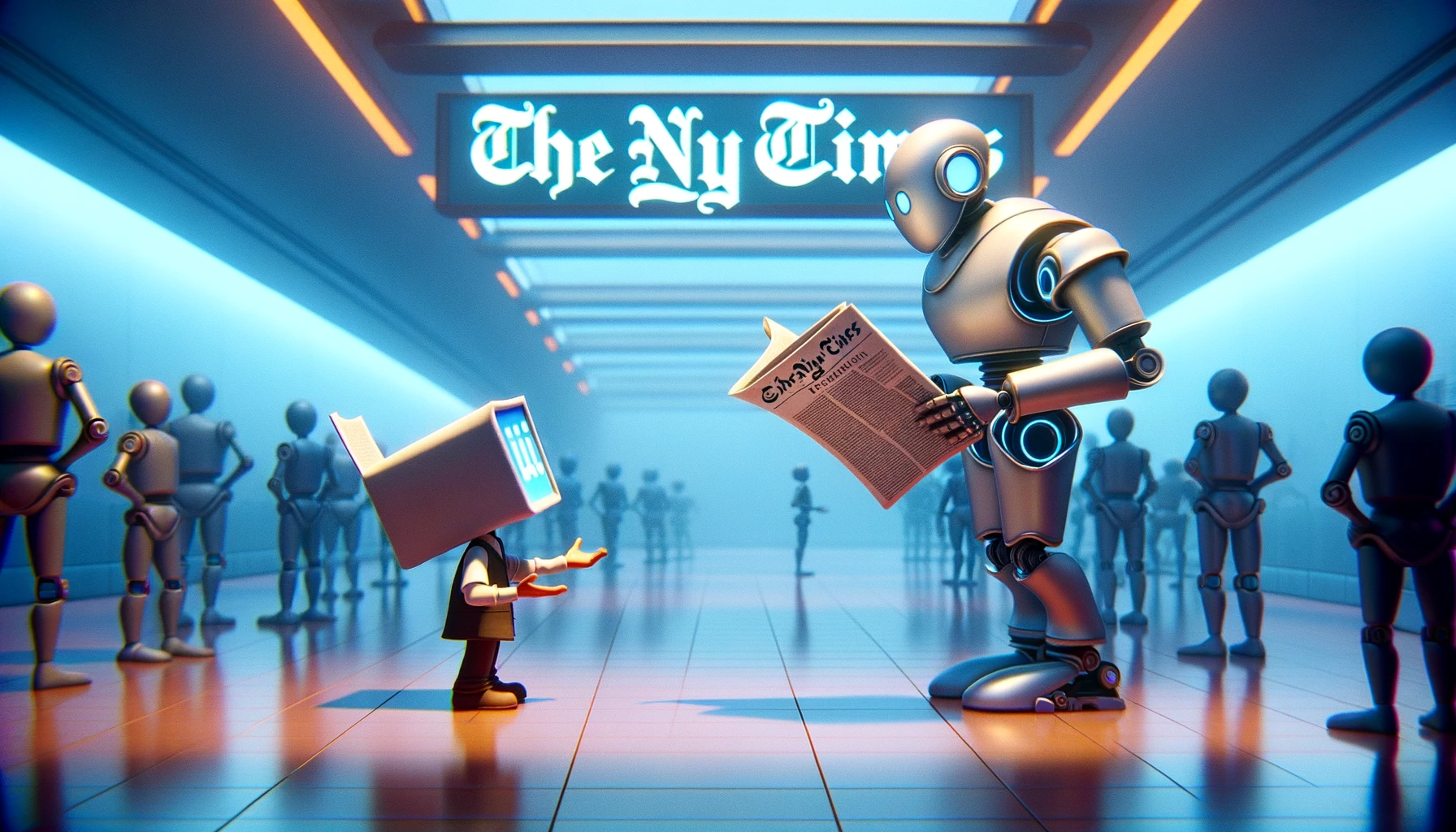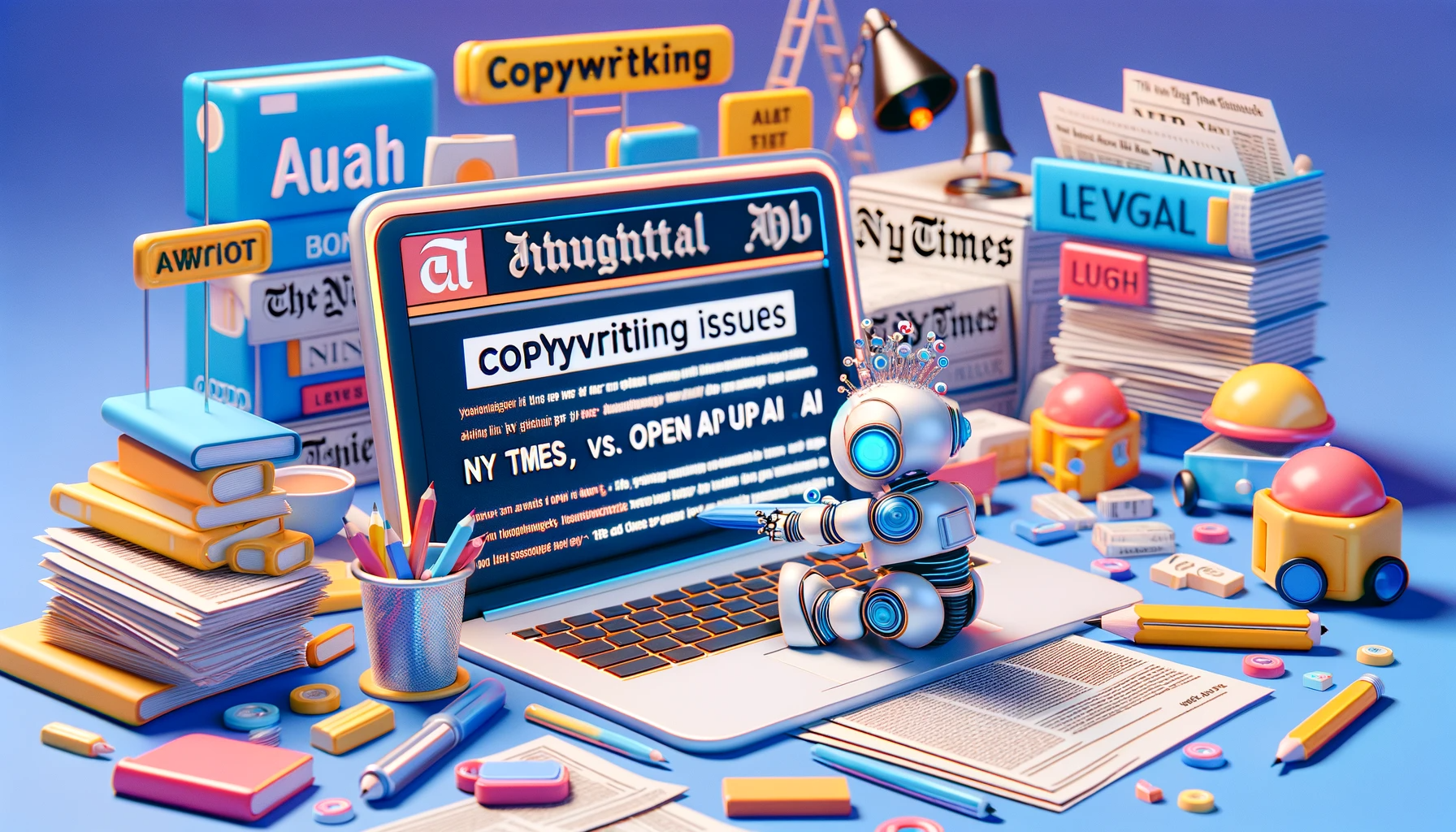AI Legal 101: Lessons from NY Times vs. OpenAI
Navigating Copywriting Issues in AI Research
The NY Times vs. OpenAI Case: TLDR
The intersection of artificial intelligence and copyright law has become a hotbed of legal, ethical, and technological debates, particularly highlighted by the lawsuit filed by The New York Times (NYT) against OpenAI. This groundbreaking case opens up a Pandora’s box of questions regarding the rights of content creators in the age of AI-driven content generation. Our in-depth blog aims to unpack this complex case, offering insights into its potential impact on the AI industry, copyright holders, and the general public.
The NY Times vs. OpenAI: A Landmark Case In a move that shook the AI community, the NYT sued OpenAI and Microsoft for allegedly using its copyrighted content to train AI models like GPT-4 and DALL-E 3. OpenAI’s defense hinges on the argument that using publicly available web data, including news articles, falls under fair use, challenging traditional notions of copyright in the digital era.
Understanding the Core Issues:
- Copyright Law vs. AI Innovation:
- The lawsuit spotlights the clash between existing copyright laws and the burgeoning field of AI. As AI models require vast amounts of data for training, the legalities of using existing web content, including copyrighted articles, come into sharp focus.
- The Debate Over Data Regurgitation:
- A key concern in this case is the AI’s ability to regurgitate training data, potentially leading to instances of plagiarism. OpenAI has claimed that such occurrences are less likely with data from singular sources like the NYT. However, critics and skeptics have provided evidence to the contrary, indicating that AI systems can reproduce copyrighted material even with minimal prompting.
- Wider Implications and Similar Cases:
- Beyond the NYT, other content creators, including high-profile authors and programmers, have raised alarms over their work being used without permission to train AI. This growing discontent signifies a broader challenge facing the AI industry in terms of ethical and legal use of training data.
- Licensing as a Middle Ground:
- Amidst these legal battles, some news outlets have opted for a different approach, entering into licensing agreements with AI firms. This strategy, while potentially offering a path to mutual benefit, has raised questions about the valuation of such content and the sustainability of these agreements.
- Negotiations and Public Sentiment:
- The case also sheds light on the failed negotiations between OpenAI and the NYT for a partnership, hinting at the complexities of forming agreements in this new landscape. Public opinion appears to favor the protection of publishers' rights, with a significant portion advocating for AI companies to compensate for the use of copyrighted materials.
Key Lessons and Guide on Copywriting in AI:
- Understanding Copyright Law:
- It's crucial to comprehend how copyright law applies to AI-generated content. This includes understanding the legalities of using training data and the resulting content's ownership.
- Ethical Data Usage:
- Ethically sourcing training data for AI is paramount. The NY Times vs. OpenAI case underscores the need for transparency and ethical considerations in data use.
- Training Data and Originality:
- One must consider the originality of AI-generated content, especially when the training involves copyrighted material. Determining the line between inspiration and infringement is key.
- Legal Precautions for AI Creators:
- AI developers and companies should take legal precautions, such as seeking permissions for data use and considering fair use doctrines, to avoid potential copyright infringements.
- Implications for Content Creators:
- Content creators using AI tools need to be aware of the potential copyright issues with AI-generated content and should ensure originality and compliance with copyright laws.
Conclusion:
The NY Times vs. OpenAI lawsuit represents a critical juncture in the evolution of AI technology and its interaction with copyright law. As AI continues to permeate various aspects of our lives, the need for clear guidelines and ethical practices in its development and application becomes paramount. This case not only highlights the challenges but also opens up dialogue for potential solutions, balancing the interests of content creators, AI developers, and the public. The outcome of this lawsuit could very well shape the future trajectory of AI development and its role in content creation.
SHIP IT TODAY
It's time to launch that product
We're a remote software company, building online tools for creators, builders, and side hustlers. We quit our 9-5 to pursue our dreams, and we want to help others do the same.
Copyright © 2025 beehiiv, Inc. All rights reserved.
Made in Typedream

